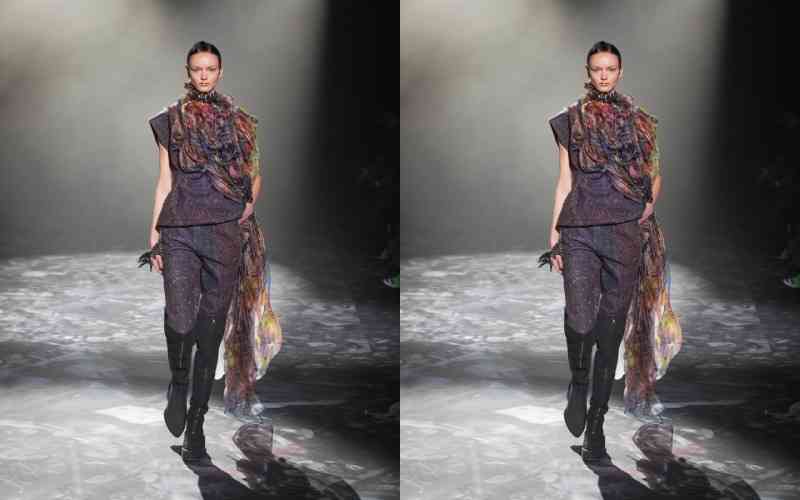
Kenya's second-hand clothes, popularly referred to mitumba, have made it to the Paris Haute Couture Fashion week thanks to a partnership between global technology company Epson and Japanese fashion designer Yuima Nakazato.
The new fabric production process was revealed in Paris as part of a three-year collaboration between Epson and Yuima Nakazato and was used in the creation of items for the first time during the latter's runway show at the Palais de Tokyo last week.
Nakazato visited Kenya where he collected around 150 kg of waste garment material destined for the "clothes mountain" of discarded textiles he encountered in the country.
Epson, a company that developed the world's first TV watch which was worn by James Bond in the movie, Octopussy, then applied its dry fibre process to produce over 50 metres of new re-fiberised non-woven fabric.
The firm's regional head for East and West Africa, Mukesh Bector says the fabric taken to create the latest Yuima Nakazato fashion line was derived from material from used garments sourced from Africa. The continent is a favourite destination for many discarded garments around the world.
Epson's dry fibre technology, which is already used commercially to recycle office paper and which requires virtually no water, has been adapted to produce printable non-woven fabric from used garments.
"The collaboration between Epson and Yuima Nakazato builds on the success of the company's printing support for his couture and evolves the level of his creations to enable the low-impact production of high-quality custom garments," said Mukesh.
The Monna Lisa digital direct-to-fabric printers use less water compared to analogue methods with Pigment inks deemed more eco-friendly.
Both parties are keen to raise awareness of the water and material waste associated with excess production. The Paris Show illustrates how switching to digital textile printing using more environmentally friendly pigment inks offers the fashion industry a more sustainable and less wasteful means of textile printing.
"Although in its early stages, Epson believes its dry fibre technology combined with pigment ink digital printing could offer the fashion industry a much more sustainable future, significantly reducing water use while allowing designers the freedom to express their creativity fully explains Hitoshi Igarashi from Epson's Printing Solutions Division," said Mukesh.
In a trial of distributed printing for venue decoration, Epson inkjet printers in Japan and France with remote support from Epson engineers were used to create decorations in the venue space.
Digital textile printing using pigment inks offers a more sustainable approach to the fabric production process compared with traditional analogue methods.
In addition to pigment inks requiring significantly less water, the digital process requires far fewer stages and is less complex, no plate production, washing or storage, and results in little disposal of used inks.
The tech company started life over 75 years ago in the foothills of the Japanese mountains and built the world's first handheld computer, selling 250,000 units.
Today it manufactures five projectors every single minute, or 2.5 million every year and is used at rock concerts, in museums and art galleries around the world.
 The Standard Group Plc is a multi-media organization with investments in media platforms spanning newspaper print
operations, television, radio broadcasting, digital and online services. The Standard Group is recognized as a
leading multi-media house in Kenya with a key influence in matters of national and international interest.
The Standard Group Plc is a multi-media organization with investments in media platforms spanning newspaper print
operations, television, radio broadcasting, digital and online services. The Standard Group is recognized as a
leading multi-media house in Kenya with a key influence in matters of national and international interest.











